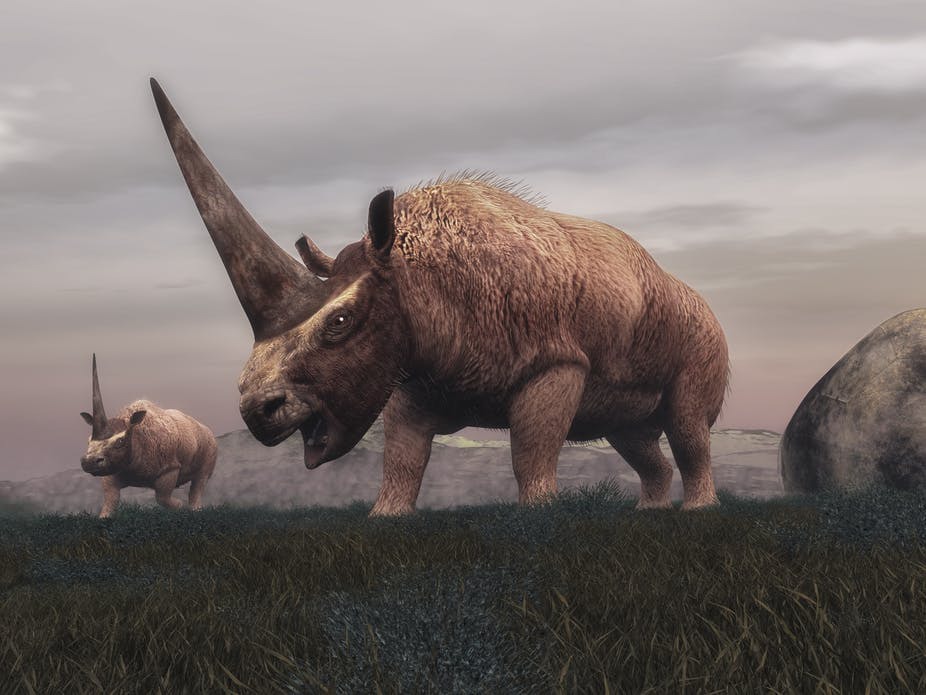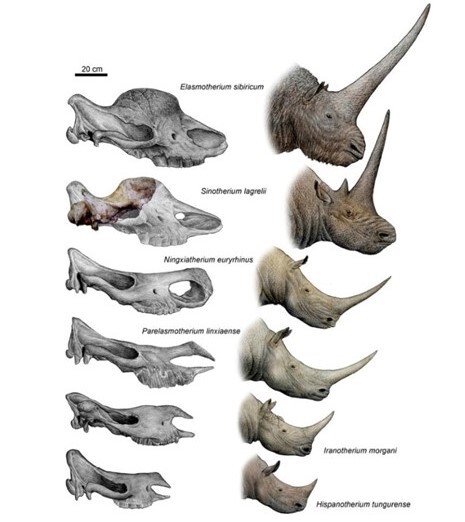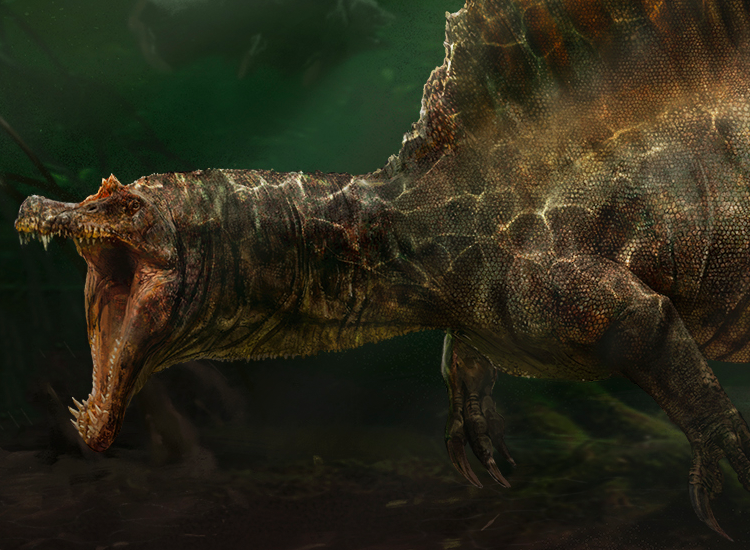The Unicorn
Elasmotherium | Sinotherium | Iranotherium
“God brought them out of Egypt; he hath as it were the strength of an Unicorn.” – Numbers 23:22
“God brought him forth out of Egypt; he hath as it were the strength of an Unicorn: he shall eat up the nations his enemies, and shall break their bones, and pierce them through with his arrows.” - Numbers 24:8

A beast of great strength and uncontainable power, the Unicorn, once walked among men in the years of ancient times. The book of Job provides the earliest witness of the animal in Job 39:9-12. However, nowadays, the memory of this historical animal is shrouded in mystery because of popular mythology. When people think of the Unicorn they think of a beautiful white horse with a slender horn. This is a pathetic and blasphemous misrepresentation of reality.
Blasphemous, I say, because the Prophets spoke of the Unicorn to illustrate the great strength and uncontainable power of God! The tender-footed mythological Unicorn of paganism doesn’t match the description. When God humbled Egypt, the greatest nation on earth at the time, by miraculously delivering Israel after many years of bondage, the LORD did it by: “the strength of an Unicorn” (Num. 23:22, 24:8)! The ancient people knew exactly what the Prophet was talking about.
Moses, Balaam, David, & Isaiah all spoke of this beast in the same fashion (Deut33:17, Num23:22, Psalm92:10, Isaiah34:10). Its horn was exalted above the horns of all other beasts! It is evident that these men were acquainted with the animal as those who had seen it for themselves, for it would have been vain to speak of an animal that the common people knew nothing about. A fossil discovered in the fertile crescent of Iran proves that the Unicorn was in the area. Therefore, in a successful effort to humble Job (rather than confuse him!), God directed his attention to the Unicorn; and while Job was at odds with the LORD about many things, they were in total agreement about the Unicorn (Job 39:9-12).

Many assume the Unicorn of Holy Scripture is simply a Rhinoceros. This assumption is reasonable, considering how closely it matches the biblical description, but there are unsettling discrepancies that should hinder this conclusion. Most Rhinos have two horns. Apparently, this can’t be said of the Unicorn. This feature of the animal is consistent with its name: “Uni” means one and “corn” means horn. In other words, it’s a One-horn animal. Indeed, the name “Rhinoceros” means “Nose-horned”, but the single-horned Rhinoceros (the Javan Rhinceros & the Indian Rhinoceros) possesses a dwarfed horn that is inglorious in comparison to the Rhinos that have two horns, and much more inglorious in comparison to the biblical Unicorn.

A lot could be said about the debate between experts on the classification of Rhino-like fossils. One animal from among the known record of extinct beasts, the Elasmotherium, is remarkably like the biblical description of a Unicorn, and it is the largest of the specimens similar to the Rhino. It had one horn that stood upright or extended outward around 6 ft in length. The gigantic animal was comparable in size to a Woolly Mammoth, and it could have weighed around 4 to 5 tons. This would make the Elasmotherium at least two times the size of modern-day Rhinos.

It is commonly known that an angry modern-day Rhino is capable of puncturing cars and trucks with its horn, flipping and rolling them at will. With such strength vested by God into the modern-day Rhino, one can only imagine what a charging Unicorn is capable of doing! Surely, a beast twice the size of a Rhino would hold men in the galleries with wonder. Consequentially, ancient men and Prophets ascribed strength to God as the Creator of the mighty Unicorn!
“His glory is like the firstling of his bullock, and his horns are like the horns of Unicorns: with them he shall push the people together to the ends of the earth…” - Deuteronomy 33:17
Many a farmer would have coveted after the Unicorn, to fasten a yoke upon it and employ it in the service of men, but everyone knew that this was an impossible feat. Jehovah’s words in Job 39:9-12 were common sense. They needed no further explanation.
“Will the Unicorn be willing to serve thee, or abide by thy crib? Canst thou bind the Unicorn with his band in the furrow? or will he harrow the valleys after thee? Wilt thou trust him, because his strength is great? or wilt thou leave thy labour to him? Wilt thou believe him, that he will bring home thy seed, and gather it into thy barn?” - Job 39:9-12
